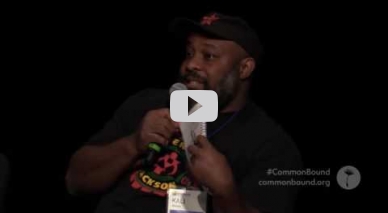If building the new economy is what we are doing, then governance is how we are doing it. On one level "governance" refers to our practices of decision making, organizational structure, task delegation, strategic planning, and sharing formal power. But these dimensions of our organizations shape and are shaped by our personal selves, our relationships, frameworks we've inherited, and the systemic context in which we organize. This track will call our community into a robust conversation about governance and culture that will chart connections between personal, organizational, movement, and system-level change.
In some senses, there is nothing more practical than the issue of governance. Every group in our movement will need to have mechanisms that enable collective action. These mechanisms, which include, for example, decisionmaking and meeting facilitation, can either open up space for us to create new systems, entities, relationships, and possibilities or they can reproduce the oppressive power relationships and colonized mind that we are trying to break free from.
Being intentional about governance means being intentional about power and decision-making; and that means directly engaging with dynamics of systemic oppression, marginalization, and identity. We exist in a world that has distributed access, safety, suffering, and power along unjust lines. Intentional and equitable governance is part of the path to reshaping those dynamics as they occur within our organizations and between our organizations and other stakeholders.
One of the challenges that our movement faces is that we have been trained to operate in the competitive, individualistic, scarcity-based system we are trying to reimagine. This leaves us struggling to find new ways of working and relating that can birth the new economy. We regularly create coercive hierarchies both on a micro and a macro level: we rely on over-worked executive directors, employ power-over as opposed to power-with, attach ourselves unhealthily to particular roles or archetypes within our organization, and feel as if we have to compete with each other for a scarcity of space to feel empowered, liberated, seen, and welcomed. Unless we figure out how to work together in a way that breaks us free from these personal, interpersonal and structural dynamics, we can neither really turn the economy nor can we offer a viable and more beautiful alternative.
Our track will deliver best practices around dimensions of governance and also create conversational and reflective space to invite the wisdom of our movement and develop deep connections.
Coordinated by:
Chris Tittle (Sustainable Economies Law Center); Jennifer Rau (Sociocracy for All); Rebecca Fisher-McGinty (Roundsky Solutions); Simon Mont
